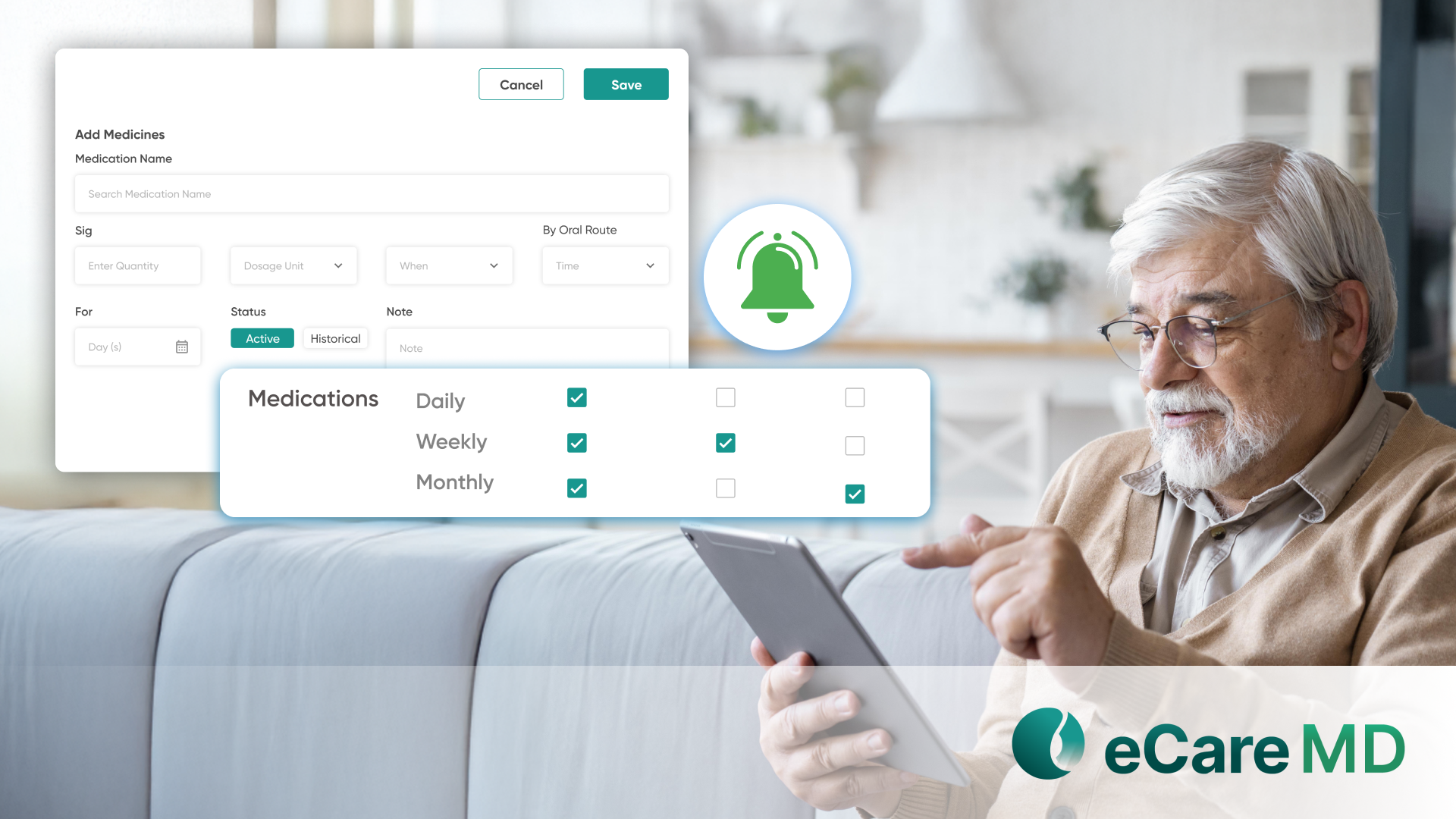Client Overview
Based in Manhattan, United States, the client has a large cardiology practice serving 8000+ patients with a high prevalence of heart failure, Diabetes, and Hypertension. Enrolling patients in Care Coordination Programs like PCM, CCM, and RPM, with the expert staff of multi-specialist providers. The primary goal of the business is to reduce 30-day readmissions in heart failure, promote medication adherence, and qualify for Medicare’s PCM reimbursement.
Business Challenges
As the client has a vast number of patients to handle, it is difficult for providers to provide care closely to each patient in critical situations like heart failure. The client faces some of the key Business challenges as below:
1. 28% Heart Failure Readmission Rate Within 30 Days
While observing the heart failure, the current challenge for the client is to prevent the heart failure rate of post-surgical patients while enrolled in the PCM program. Because of insufficient real-time patient vital data, the care team fails to deliver health assessments on time, putting patients' health at risk.

2. Poor Medication Adaptation Between Patients
The frequent change in patients' health, change in action plan, and lack of careful medication reconciliation lead to poor Medication adaptation and patient engagement. The lack of patient education and engagement activities remotely poses important challenges to providers to make patients more educated and to facilitate their adaptation.
3. Unintegrated Communication System Between Multiple Providers ane Specialists
Treating patients with serious chronic conditions like heart failure, high blood pressure, etc., requires a specialist team, including primary care and cardiologists. Insufficiency of communication between multiple care team members is delaying care delivery, which impacts the patient’s overall health recovery.
4. Manual Care Plan Tracking is Causing 15+ Hours Weekly for Providers
In the PCM program, it is necessary to form a condition-oriented Care plan. The current manual process for care plan creation and progress tracking (updates) consumes 15+ weekly hours for care team members. This results in the wasting of valuable time of the provider team and causes unproductivity.
Solution Provided
In order to tackle the major business problem, the client has approached Medarch’s “eCareMD” Care Coordination Software. The Medarch had several calls with clients with the aim of understanding clients’ multi-specialty health care services and providing a Live demonstration of the “eCareMD” platform and its automated workflow, which tackled key business problems as below:
Solution Highlighted and Benefits
1. Alerts generation system to avoid critical situations
By analyzing clients' business concerning PCM care management, the team has implemented “eCareMD” software, where the business workflow is managed in a single place. It solved urgent care delivery by automated workflows for providers to take necessary action while the patient is in a critical situation, with functionalities like alert generation. This platform also sends health reports to the care team members and alerts via email and text in real time to identify any critical cases, such as High blood pressure and Heart failure.
2. Device Integration Functionality for Real-Time Vital Data Import
The implemented “eCareMD” solution has the device integration functionality where the provider can assign a Medical device to a particular patient and get vital data directly into eCareMD, which enables the provider to review and provide necessary steps closely for each patient. This functionality supports Multiple device vendors such as Tenovi, TrasTrek, and Smartmeter, from which the client has been ordering multiple Devices directly from the portal itself. Because of this device integration functionality, the provider team has a constant eye on patients’ health via automated alerts, task assigning, and Health assessment through email, text, and voice call functionality.
3. Automated Medication reminders and educational content delivery
For patient engagement activities, the eCareMD has key features for sending reminders, adding tasks, and assigning health assessments via email and Text. These features helped care team members to keep patients constantly engaged and educated them on their health journey, and action plans, and spread awareness of self-care. The solution also generates push notifications to care team members if any activities are performed by the patient; it has a mobile application for patients to keep in touch with their care team members.

4. Streamlined communication portal connecting all care team members
The client’s multispecialty business requires an integrated communication system as their provider team works together on a single patient. To tackle this issue, the implemented eCareMD software works at each provider level to ensure a seamless patient outcome journey. It has a role-based system to notify each team member, such as a care manager, a physician, etc. The dedicated communication channels create effective communication between the providers, and providers can easily send reports to each other, such as billing, vitals, care plan, and clinical. The module has three separate sections, such as messages (chat), text/SMS, and email, within the provider to the patient and also between providers.
Value added to client practice
1. 42% reduction in heart failure readmissions within 6 months
By implementing device integration, the client has successfully reduced readmissions of heart failures by 42% within just 6 months. It alerts the care team members in critical situations to take necessary action plans.
2. 32% of additional annual revenue through Medicare PCM reimbursements
The robust and accurate report generation helped the client’s business to achieve more reimbursement in the PCM program, proving quality auditing, while claim submissions resulted in 32% of annual revenue through PCM reimbursement.
3. 60% improvement in medication adherence rates
The Document upload and assign features boost patient engagement activities, deliver every educational content at each click, and send reminders about their medication intakes, resulting 60% improvement in medication adherence rate.
4. 25 hours weekly time savings for clinical staff
The automated workflows help staff to make an action plan quickly, such as creating a care plan, tracking patients' goal progress, and reviewing each clinical outcome of a patient. These automated workflows save providers 25 hours weekly of clinical staff.

